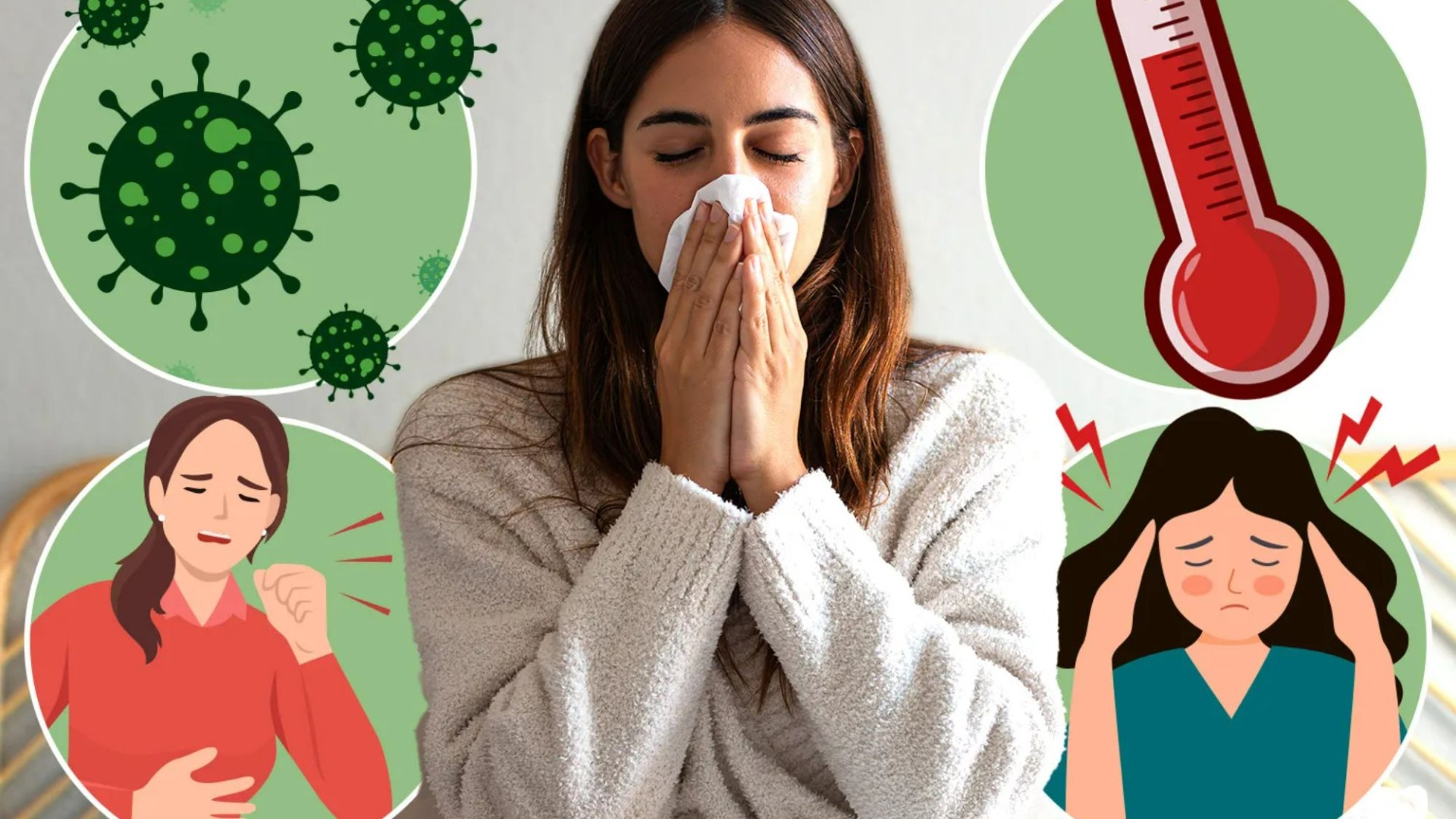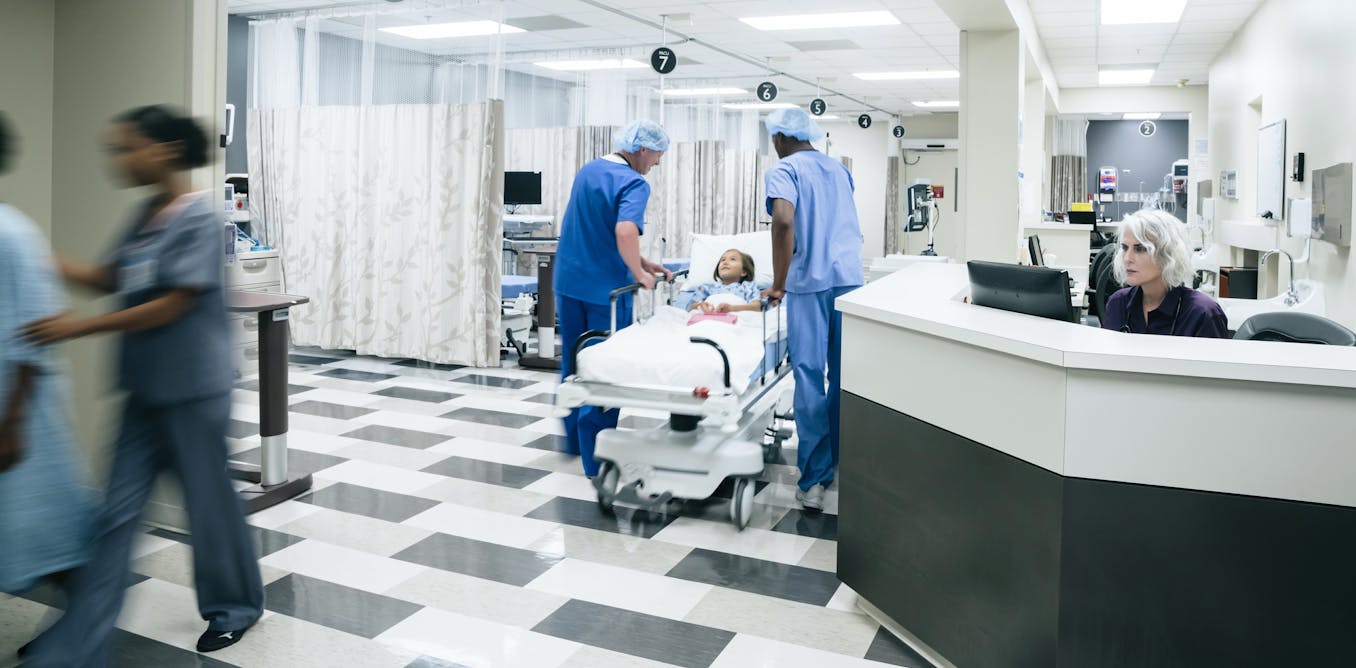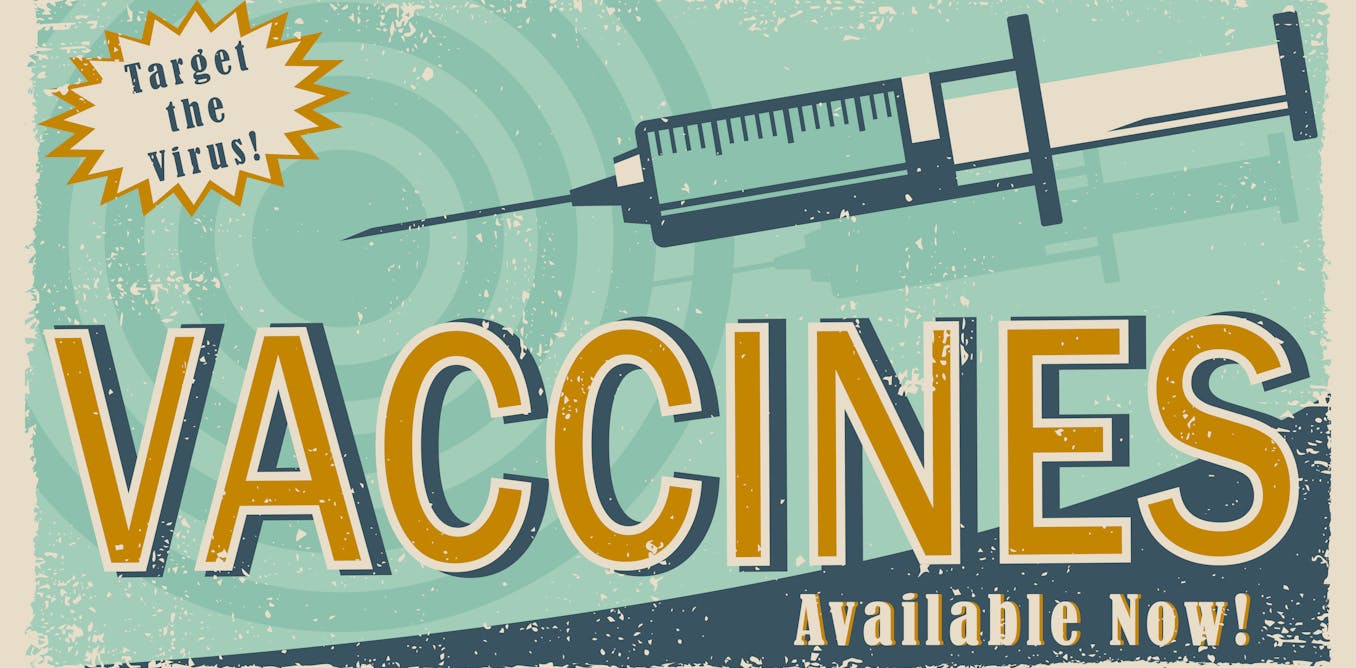CASES of winter illnesses have been surging in the UK leading to mounting pressure on NHS hospitals.
The latest figures reveal the dreaded ‘quad-demic’ has hit – with flu, Covid, RSV and norovirus cases all on the rise.
3

3
Data from NHS England shows there were an average of 5,408 flu patients in beds in England each day last week, including 256 in critical care.
This is up 21 per cent from 4,469 the previous week, when 211 were in critical care.
And cases of Covid, norovirus and RSV have also been shown to be up with the cold weather setting in.
To add to the list of winter bugs doing the rounds, hMPV is reportedly behind the surge in illness in China and scenes of hospital crowding.
Read more on winter illnesses
While some people are hearing about hmPV for the first time, the virus has actually been around for decades and presents similar symptoms to a cold.
With all respiratory illnesses, including flu, Covid, RSV and hMPV, sharing similar symptoms, how can you tell which one you’ve got?
We look in detail at how the different symptoms compare – and what distinguishes each one from the others.
Human metapneumovirus (hMPV)
hMPV can cause upper and lower respiratory disease in people of all ages – but it’s especially common among young children, older adults, and people with weakened immune systems.
According to the American Lung Association, HMPV causes symptoms such as:
- A runny or blocked nose
- A high temperature – signs include your back or chest feeling hotter than usual, sweatiness and shivering (chills)
- A sore throat
- A cough
- Difficulty breathing

3
Respiratory syncytial virus (RSV)
RSV is a common cause of coughs and colds and symptoms usually start within a few days of getting infected.
According to the NHS, most people only get cold-like symptoms, such as:
- a runny or blocked nose
- a cough
- sneezing
- tiredness
- a high temperature – signs include your back or chest feeling hotter than usual, sweatiness and shivering (chills)
Like hMPV, young children, older adults and those with weakened immune systems are at greater risk.
Almost all children get RSV at least once before they’re two years old.
But how it differs from hMPV is RSV is more likely to cause severe illness in infants younger than six months.
Flu
Flu shares similar symptoms to hMPV and RSV, but symptoms tend to feel worse.
Fever is also uncommon with cold symptoms, whereas it’s a hallmark flu symptom.
The NHS says flu can come on quickly and symptoms can include:
- a fever
- an aching body
- feeling tired or exhausted
- a dry cough
- a sore throat
- a headache
- difficulty sleeping
- loss of appetite
- diarrhoea or tummy pain
- feeling sick and being sick
Covid
Both the flu and Covid-19 cause a cough and shortness of breath, but overall, medics say Covid symptoms tend to last longer than the flu.
The World Health Organisation (WHO) says Covid affects different people in different ways.
But most infected people will develop mild to moderate illness and recover without hospitalisation.
It lists the most common symptoms as:
- fever
- cough
- tiredness
- loss of taste or smell
And less common symptoms as:
- sore throat
- headache
- aches and pains
- diarrhoea
- a rash on skin, or discolouration of fingers or toes
- red or irritated eyes
One of the best ways to tell if you have Covid is by doing a Covid test.
Simple steps to avoid winter bugs
Get vaccinated
Those that are eligible for the flu, Covid and RSV vaccines, especially the elderly, pregnant women, and those with pre-existing health conditions, are urged to get their vaccinations.
Vaccinations can help reduce the risk of getting seriously ill.
Keep washing your hands
Regularly washing your hands with soap and warm water for 20 seconds and using bleach-based products to clean surfaces are effective ways to stop the spread of infections.
Give social gatherings a miss
If you do have respiratory symptoms such as a cough or sore throat, along with a fever, consider giving social gatherings a miss as it’s best to avoid close contact with other people, especially those who are vulnerable, such as the elderly or those with weakened immune systems.
If you do go out in crowded places, consider wearing a face mask to reduce your risk of infecting others.
Source: NHS




